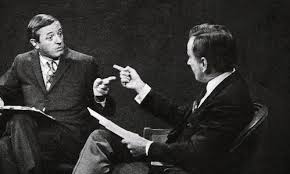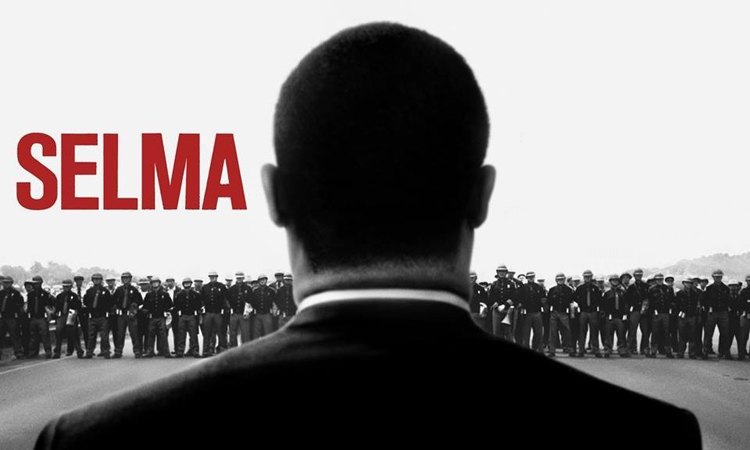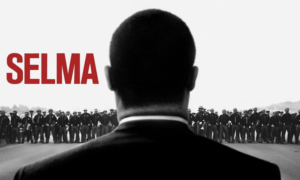Best of Enemies
Posted on July 30, 2015 at 5:23 pm
B+| Lowest Recommended Age: | Middle School |
| MPAA Rating: | Not rated |
| Profanity: | Some strong language |
| Alcohol/ Drugs: | Drinking, smoking |
| Violence/ Scariness: | Archival footage of 1968 protests |
| Diversity Issues: | A theme of the movie |
| Date Released to Theaters: | July 31, 2015 |

Once upon a time, network television news was dignified, objective, and delivered in stentorian, voice-of-God tones by white, vaguely Protestant men, in half-hour increments at the dinner hour. And then, in 1968, third-ranked network ABC, unable to compete with CBS and NBC in gavel-to-gavel coverage of the political conventions delivered by universally respected news teams, decided to try something new. For $10,000 each, they hired extreme right-wing author/journalist William F. Buckley and extreme left-wing novelist/journalist Gore Vidal to discuss and debate each day’s events at the conventions which would end up nominating Richard Nixon and Hubert Humphrey.
Buckley and Vidal had a great deal in common. They were both combative, rapier-witted, hyper-verbal men from upper-class families, probably the last generation to be able to refer to themselves as “one” unironically. Both ran for office, perhaps more as theater than as real-life politics. When asked what his first act would be if he was elected mayor of New York City, Buckley famously quipped, “Demand a recount.”
And both men had in common a deep, visceral, loathing for one another that even exceeded their disdain of each other’s politics. Buckley was Catholic and a social as well as political conservative. Vidal was a proud libertine, whose most recent book at the time, Myra Breckinridge, was about a transgender woman, played by Raquel Welch in the movie version.
Their debates were unprecedented in the staid world of television news. So were their ratings. “Best of Enemies” is a new documentary about the Buckley-Vidal convention commentary. It is fascinating as theater to see two classically educated, combative, passionately partisan, men who so seldom met their matches square off against one another. Mere mortals who suffer from l’esprit d’escalier (the spirit of the staircase — the witty riposte not thought of until leaving the party on the stairs) can only envy these rapier-witted combatants try to use the upheavals of one of the most tumultuous and politically charged years in American history to score personal and political points. By the end, they were more interested in hurting each other than helping their causes. Buckley famously lost his temper and used a homophobic slur that was shocking in those days when everything on television was bland and family-friendly.
It is more than entertaining. It illuminates a significant moment in a time of enormous change. And the filmmakers are persuasive that it was a turning point that led directly to contemporary “news” that, as anchorman Howard K. Smith said to Buckley and Vidal at the end of their final segment, shed more heat than light.




